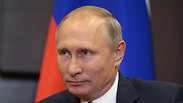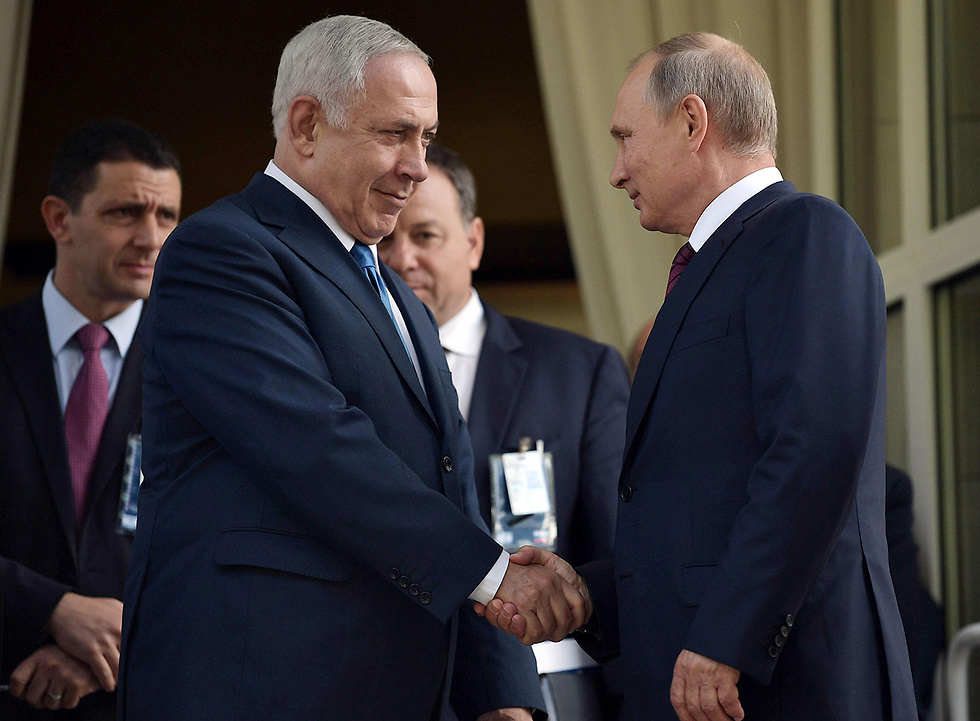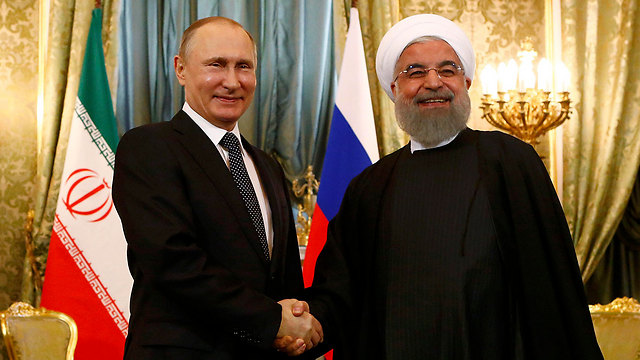

Pravda: Russia to continue backing Iran despite PM's exhortations
Analysis: After their meeting in Sochi last week, the Prime Minister recounts how he warned Putin Israel won't stand idly by as Iranian presence looms near Israel. A new account of the meeting released by Pravda, however, paints a different picture. 'Netanyahu was close to panic, Putin stayed cool,' reports the Russian paper.
The declarations were forceful enough. After the meeting between the prime minister and the Russian President Netanyahu spoke in sharp, certain terms on the Iranian entrenchment in Syria and Lebanon. "I expressed the severity of the matter to Putin and made it clear we consider it unacceptable. It's aimed against us and we won't remain indifferent."
His demand was clear: Russia must stand alongside Israel in preventing Tehran's growing efforts to strengthen their hold on the Middle East.
The severity of the situation in the prime minister's eyes cannot be doubted, nor can the manner in which he presented it to Putin. What is less clear, however, is whether the Russian president agreed with any of it—and whether he intends to do anything about it.
"According to eye witnesses to the open portion of the talks," reports Pravda in an article describing the meeting, "the Israeli Prime Minister sounded agitated and, at times, even close to panic."
Pravda is considered to represent the views of the Russian government and—according to a former high ranking official in the political-security system—the description came from the Kremlin itself. According to the official, Putin is likely behind these harsh assertions.
"Despite Netanyahu's emotional state, the Russian leader remained calm," the Russian paper continues. "Putin said 'Iran is Russia's strategic ally in the Middle East,' but added 'Israel is also an important partner of Russia in the region.' He noted Moscow does indeed take the Jewish state's security interests into account."
According to the paper's claims, "Netanyahu's worst nightmare came true since Putin rejected his threats." The article stresses Netanyahu failed in his attempt to convince Putin, adding that Russia will continue working to strengthen Tehran's position in the region.
"Israel cannot teach the Kremlin how Russian policymakers should shape their Middle Eastern policy," it said. "Russia will continue nurturing and growing Iran's influence in the region opposite the Arab royal houses attempting—along with Israel—to create a NATO-style military alliance receiving instructions from, and subordinated to, the US."
The conclusion drawn by the high ranking Israeli official, who was privy in the past to all contact between Netanyahu and Putin, was that despite the prime minister's threats to harm the Iranians, we'll nevertheless continue seeing its entrenchment in Syria, shoring up the Assad regime and continuing to arm Hezbollah.
Indeed, even Pravda makes it a point to mention Israel's claims aren't without merit. "Experts say Netanyahu isn't entirely exaggerating when talking about Tehran's plan to expand its influence to the entire Middle East. On August 22 the Iranian Deputy Minister of Foreign Affairs arrived to Beirut and held talks with Nasrallah. The next day he was received by the Lebanese Prime Minister, who said 'Israel and terrorism are the two major threats Lebanon and the entire Middle East are facing.'"
On Monday, Prime Minister Netanyahu presented UN Secretary-General António Guterres with a similar analysis to the one he described to Putin.

















